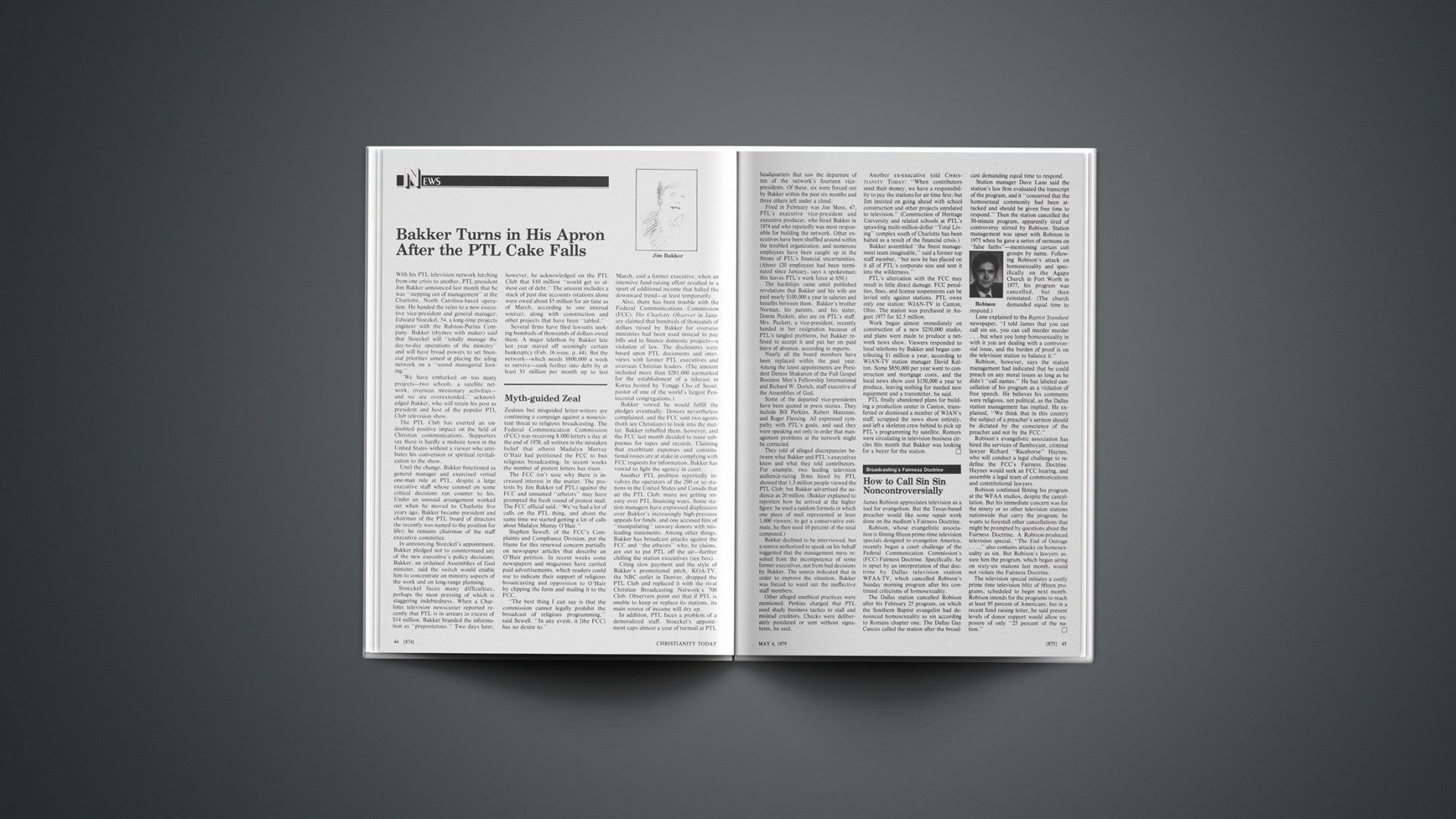James Robison appreciates television as a tool for evangelism. But the Texas-based preacher would like some repair work done on the medium’s Fairness Doctrine.
Robison, whose evangelistic association is filming fifteen prime-time television specials designed to evangelize America, recently began a court challenge of the Federal Communication Commission’s (FCC) Fairness Doctrine. Specifically, he is upset by an interpretation of that doctrine by Dallas television station WFAA-TV, which cancelled Robison’s Sunday morning program after his continued criticisms of homosexuality.
The Dallas station cancelled Robison after his February 25 program, on which the Southern Baptist evangelist had denounced homosexuality as sin according to Romans chapter one. The Dallas Gay Caucus called the station after the broadcast demanding equal time to respond.
Station manager Dave Lane said the station’s law firm evaluated the transcript of the program, and it “concurred that the homosexual community had been attacked and should be given free time to respond.” Then the station cancelled the 30-minute program, apparently tired of controversy stirred by Robison. Station management was upset with Robison in 1975 when he gave a series of sermons on “false faiths”—mentioning certain cult groups by name. Following Robison’s attack on homosexuality and specifically on the Agape Church in Fort Worth in 1977, his program was cancelled, but then reinstated. (The church demanded equal time to respond.)
Lane explained to the Baptist Standard newspaper, “I told James that you can call sin sin, you can call murder murder … but when you lump homosexuality in with it you are dealing with a controversial issue, and the burden of proof is on the television station to balance it.”
Robison, however, says the station management had indicated that he could preach on any moral issues as long as he didn’t “call names.” He has labeled cancellation of his program as a violation of free speech. He believes his comments were religious, not political, as the Dallas station management has implied. He explained, “We think that in this country the subject of a preacher’s sermon should be dictated by the conscience of the preacher and not by the FCC.”
Robison’s evangelistic association has hired the services of flamboyant, criminal lawyer Richard “Racehorse” Haynes, who will conduct a legal challenge to redefine the FCC’s Fairness Doctrine. Haynes would seek an FCC hearing, and assemble a legal team of communications and constitutional lawyers.
Robison continued filming his program at the WFAA studios, despite the cancellation. But his immediate concern was for the ninety or so other television stations nationwide that carry the program; he wants to forestall other cancellations that might be prompted by questions about the Fairness Doctrine. A Robison-produced television special, “The End of Outrage …,” also contains attacks on homosexuality as sin. But Robison’s lawyers assure him the program, which began airing on sixty-six stations last month, would not violate the Fairness Doctrine.
The television special initiates a costly prime time television blitz of fifteen programs, scheduled to begin next month. Robison intends for the programs to reach at least 95 percent of Americans; but in a recent fund raising letter, he said present levels of donor support would allow exposure of only “25 percent of the nation.”










